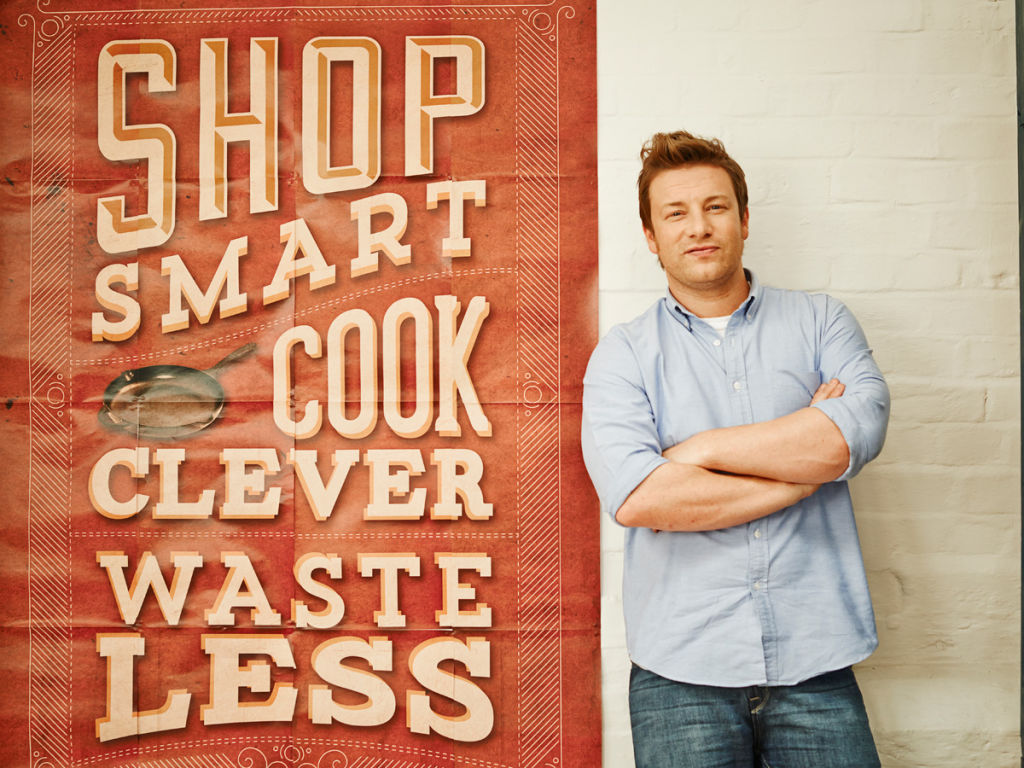Naked ambition: Chef Jamie Oliver has serious unfinished business

It was in 2005 when chef Jamie Oliver took on a televised project that is still shaping his culinary vision. In Jamie’s School Dinners, the ebullient foodie battled fearsome dinner ladies, outraged students and funding cuts to highlight the dangerous amount of processed food being fed to Britain’s school kids. Except, this wasn’t a British movement. It was global.
“I guess I should have predicted it would go viral,” he says. “And perhaps it always should have anyway. It began talking about school dinners and how they were fundamental to our kids’ physical and mental wellbeing in daylight hours, but it enlarged into this bigger conversation about lunches in general and all the hidden nasties present in so much of what we give our kids, whether in school or out of it.
“Like most things I take on, they begin as one little idea and soon morph into something I can’t really pull back in,” he laughs.
Despite a number of obstacles and a rapidly expanding brief, Jamie’s School Dinners eventually led to a government-instigated overhaul of cafeteria menus across Britain which sought to replace processed and fried foods with healthier home-cooked alternatives.
Since School Dinners, his net has been cast ever-wider. Moving beyond British shores, that scope has seen his Food Revolution tackle issues in China, the US, Canada, and here in Australia.
In part, it has propelled Oliver, who originally made his mark as the Naked Chef, transform from cheeky celebrity chef to bona fide social campaigner.
He has fronted a number of televised movements – such as 2008 series Ministry of Food – and has been part of a host of radical charity initiatives including his own Jamie’s Food Revolution, which states its mission as to “provoke debate and inspire real, meaningful, positive change in the way our children access, consume and understand food”.
The desire to encourage children to see the benefits of healthy cooking even led to Oliver – a dyslexic who read his first book aged 38 – undertaking a degree in food nutrition. “What I love about almost every country this has been to is that we may not be speaking the same language or have the same words, but everyone understands [what’s] important,” he says.
“You instinctively know what’s right and what’s wrong in a lunch – it’s just common sense. I think we are most closely aligned to Australia and New Zealand and it’s always been a thrill working there.
“It’s that mutual respect we have for each other and it’s such a buzz to be able to have similar relationships across the other side of the world.”
Of course, as Oliver’s personal reputation has risen, so too have his charitable contributions and he is said to be the seventh most generous celebrity in the UK.
His work earned him an Honorary Fellowship from the Royal College of General Practitioners and the esteemed TED Prize, which grants the winner US$100,000 ($138,000) to put towards their “wish to change the world”, which he stated in 2013 was “your help to create a strong, sustainable movement to educate every child about food, inspire families to cook again and empower people everywhere to fight obesity”.
There have been leaps and bounds made in the fight against child obesity, and Oliver’s charities continue to work raising awareness of the more hidden aspects of a global epidemic.
However, the chef himself has regularly asserted that the problems he has devoted so much time and money to combating start with how parents educate their children.
With the march of technological advancement, Oliver is aware that the issue he is facing is now perhaps more widespread than it was more than a decade ago.
“I have a problem with all these kids and iPhones, for example,” he wrote on his blog.
“I see it first-hand: you go somewhere and a group of kids will hold up iPhones to take your picture.
“They’re looking at me, and I’m looking at about £3000 ($5300) worth of phones thinking: ‘Are these seriously your phones?’ Why do you need this stuff?’ ”
We recommend
We thought you might like
States
Capital Cities
Capital Cities - Rentals
Popular Areas
Allhomes
More







